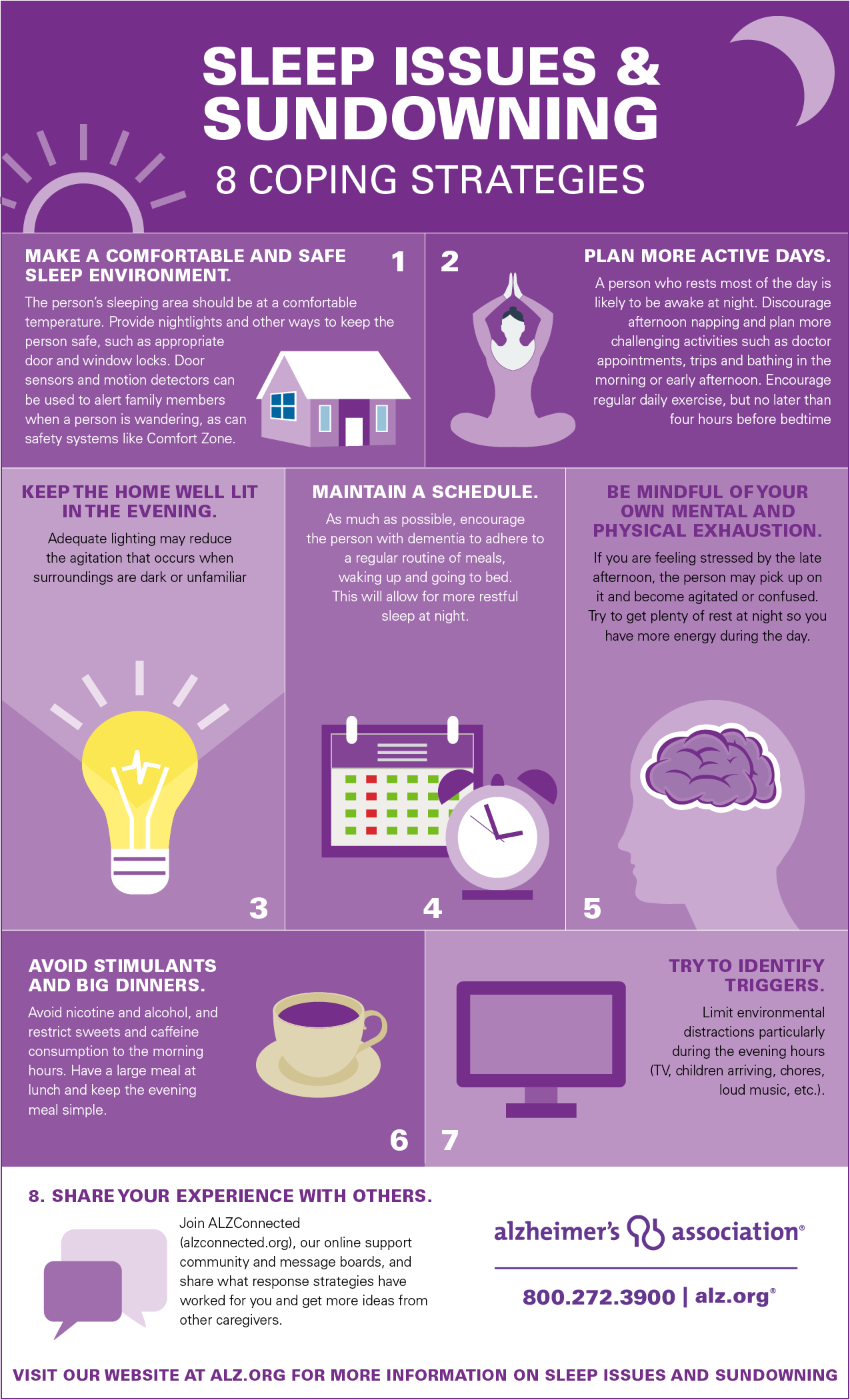Casual Tips About How To Deal With Sundowners

Use your smartphone or journal to track what triggers or worsens symptoms so you can avoid situations that promote agitation and confusion.
How to deal with sundowners. Accept what you cannot change.
This increased confusion, especially as dusk and night approaches, is known as sundowner’s syndrome. Increasing activity during daylight hours can help get the circadian rhythm back. And then, refocus on something else (music, or a game or.
Seniorly breaks down the triggers and symptoms of sundowning, and provides tips on how to effectively manage the condition. Call our 24 hours, seven days a week helpline at 800.272.3900 The area of the brain that signals when you’re awake or asleep breaks down in.
Aromatherapy may lower stress levels, which may prevent or reduce the manifestation of sundowning symptoms. 5, 2024, at 1:08 p.m. Learn how to manage it.
Try to distract the person with a favorite snack, object, or activity. For some people, sundowning issues can result from optical confusion, such as headlights. This causes increased symptoms, such as agitation, and confusion.
Also, try to go for a walk even if just around the yard before it gets dark. But caregivers needn’t deal with sundowning alone. Look for triggers certain activities and environments can trigger your loved one’s sundowning, things like fatigue, loud noises, discomfort, taxing activities or changes in environment or caregivers.
Your loved one might react to unfamiliar places and things with feelings of stress, confusion, and anger. Stick to a schedule dementia can make it hard to develop and remember new routines. Try to reassure the person that everything is ok and distract him or her from stressful or upsetting events.
Get in the habit of having quiet evenings. For many of our elderly loved ones, late afternoons and evenings are filled with panic, confusion and. So to go with the flow is best!
These strategies can help caregivers cope. This video explains how to deal with sundowners syndrome (aka sundowning) when your elderly parent keeps waking up in the middle of the night and you can't s. You can also try these tips:
Seniors tend to walk around and turn off the lights or have dim bulbs as part of their “energy saving” mentality, but the more lights on the better. Shut off the tv early and avoid playing any music unless it’s something peaceful and calming. Sundowning can affect people with dementia in the middle or late stages of the disease.

















